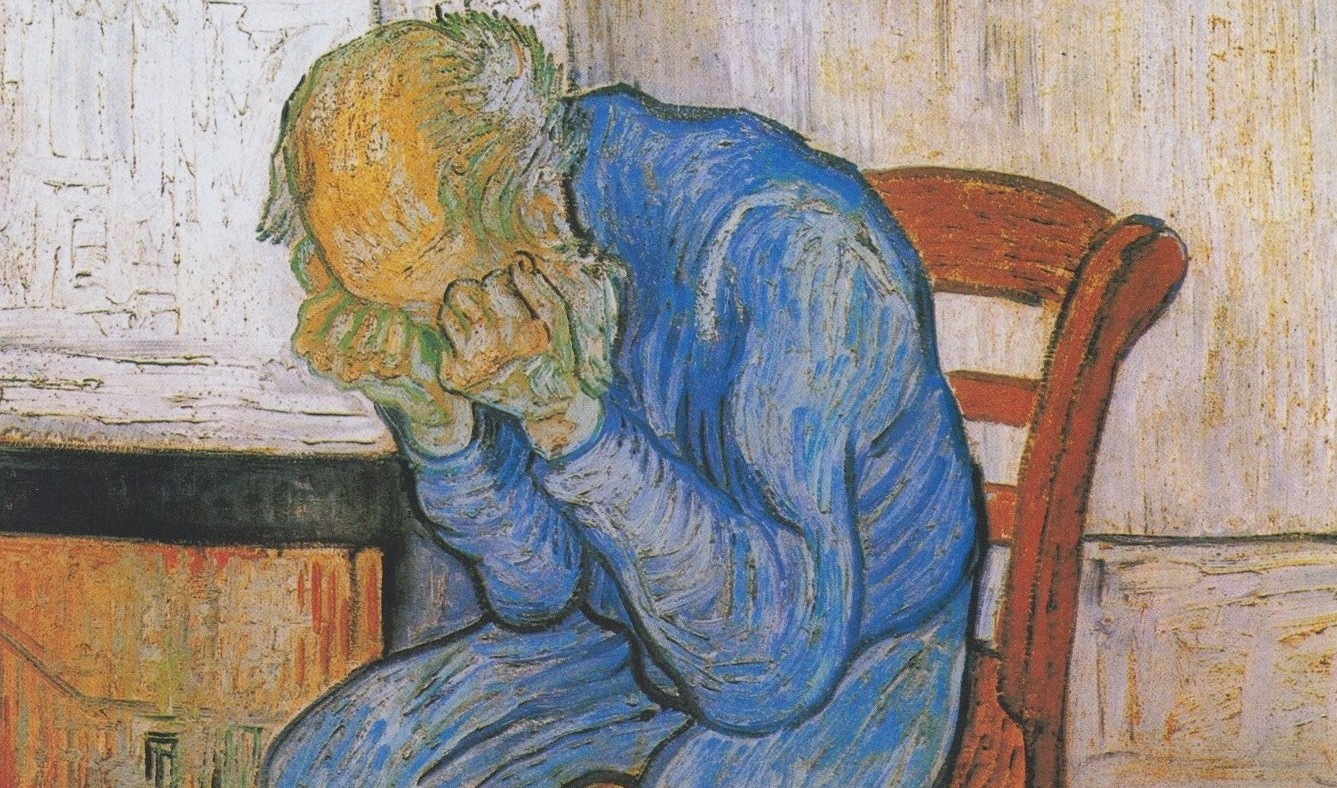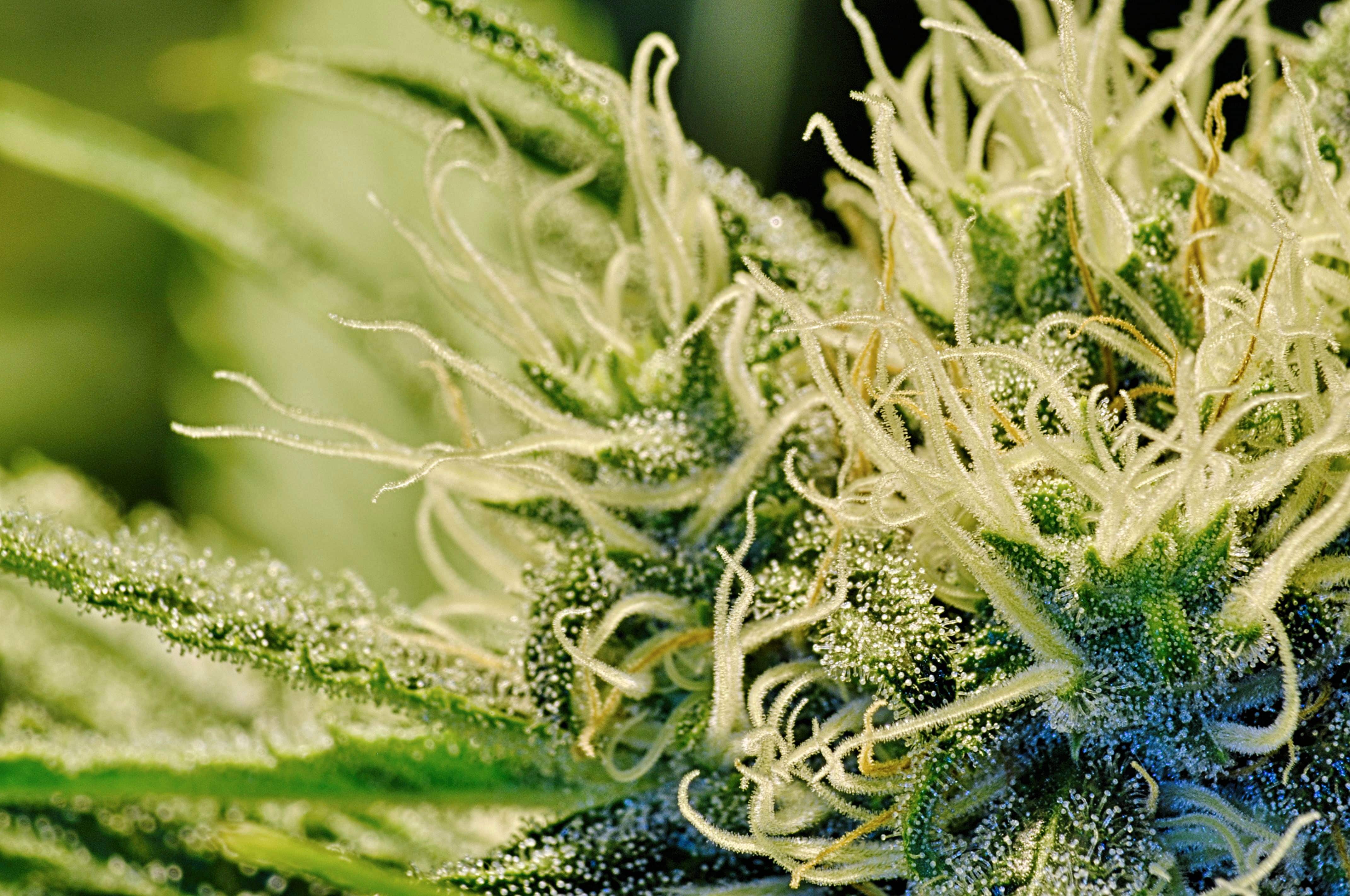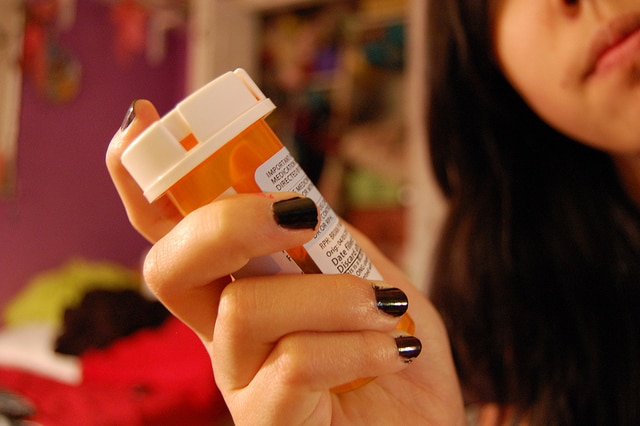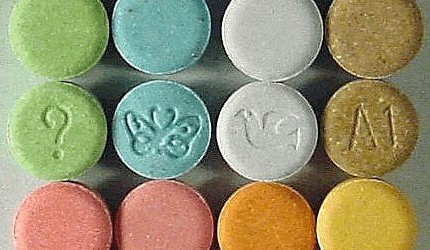
The radical changes in perspective from a psychedelic experience has shown to ease depressive tendencies. Vincent Van Gogh, Sorrowing Old Man (At Eternity’s Gate) | Image Source: Public Domain via Wikipedia
Depression is a lifelong struggle for a lot of people. For people who suffer from chronic depression, daily living can feel like an almost impossible ordeal — joyful activities are bleached of their color and dark thoughts seem to come from nowhere. We feel isolated and alienated from friends and family.
Many of us who struggle with depression wish for some radical change to uproot these negative patterns but are at a loss as to how. Imagine for a moment what that radical change might feel like: the world is again full of wonder, meaning, and vibrant color. It feels like a weight has been lifted, and creative and positive thoughts abound. Friends and family members that you’ve lost touch with seem within your reach again.
If that sounds familiar, you might recognize that these are feelings typical of a psychedelic experience. In recent years, we’ve seen an increasing amount of research that supports the role of psychedelics to treat a variety of psychological disorders like obsessive-compulsive disorder and alcohol addiction. As modern science begins to catch up to ancient folk wisdom, we are seeing a growing body of research and evidence that psilocybin (the principle active chemical in “magic mushrooms”) shows special promise for alleviating depression.
Psilocybin and Depression — What Makes an Effective Depression Treatment?
Depression is a complex set of psychological and physiological symptoms. But while we still don’t know its exact causes or solutions, we do have some landmarks to show us the way. If you or a loved one has experienced depression, you may be familiar with the continuous cycle of unforgiving thoughts called “rumination.” These unproductive thoughts focus on negativity rather than solutions—thoughts like “why am I such a loser?” or “I can’t get anything right” are common for a person struggling with depression.
Negative thoughts like these are tied to a region in the brain called the medial prefrontal cortex, which becomes more active when we think about ourselves. The medial prefrontal cortex is chronically hyperactive in people who have depression. Successfully treating depression and developing a healthier mindset requires calming this area, and psilocybin has shown to do just that. During a psychedelic experience, the obsessive self-evaluation tones down, and we can begin to appreciate the world around us without relating it back to deep-seated self-judgment. This is one of the many ways psychedelics can help us uproot negative thought patterns and create a positive foundation for ourselves.
The vivid memories we experience from psilocybin have shown to be valuable tools in redefining our outlook on life. By focusing on good memories while in this state of lessened self-judgment, we can better integrate these positive experiences into our daily lives. A study on psilocybin-assisted psychotherapy supports this idea: the more vividly participants recalled memories, the greater their well-being was two weeks later.
For many, depression may stem from direct adversity or tremendous loss. As human beings, we cannot escape these facts of life, but we can learn to cope with them—even to accept them. One moving study from UCLA used a test group of people faced with a terminal cancer diagnosis. After taking psilocybin, the research found that the group’s psychological distress was considerably alleviated by the experience. Psychedelics help us to appreciate the world beyond ourselves and give us a sense that we are more than a physical body with unpredictable feelings. These insights allow us to appreciate the moment and live fulfilling lives despite an uncertain future.
The Safety of Psilocybin for Treating Depression
As research into psychedelics is only beginning to trickle back into the mainstream, many are unaware of psilocybin’s total lack of long-term physical side effects. In a recently published robust and long-term study, even casual use has been shown to not be connected with any negative mental health outcomes.
Reported negative reactions or “bad trips” tend to occur when a person is psychologically unprepared for a psychedelic experience and does not have an experienced guide. Setting an intention before an experience is key; psychedelics are better suited to fully embrace and explore our consciousness than to escape it. The necessity of an experienced sitter—or better yet, a professional trained in facilitating therapeutic psychedelic experiences—cannot be understated.
Is Psilocybin Right For You?
In a seminal 2006 study (the first on psychedelics since the 70s), participants were given psilocybin in a controlled setting, with an experienced guide and a nurse on standby. Over 70 percent rated the experience as one of the five most important in their lives. Moreover, 30 percent rated it the single most important experience of their lives. The link between psilocybin and depression treatment is a promising one. For many, such a radical experience could be the first step on a road to recovery.
With guidance, psilocybin can help us quiet the dark corners of our minds, brighten our best memories, and help us accept the challenges ahead. It can break down negative habits and let us look with fresh eyes at the wonder of the world around us. In what can feel like a gray and isolated world, psilocybin offers a beacon of light. If you are seeking personal treatment, we can help connect you with an experienced professional to facilitate your healing and personal growth.











hi, I have struggled all my life with mental illness, inescapable malaise, and chronic anxiety. I have been on 3 antidepressants with only one (Zoloft) being effective at all though tinged with an apparently diminishing effect. I feel as though my consciousness is crumbling and I’m struggling just to hold it together. I believe psychedelics may be the only thing that can help my mental state, I feel as though I have nothing more to lose and want to explore my consciousness, so I can confront the ego within me; so I can end the attrition of my mind.